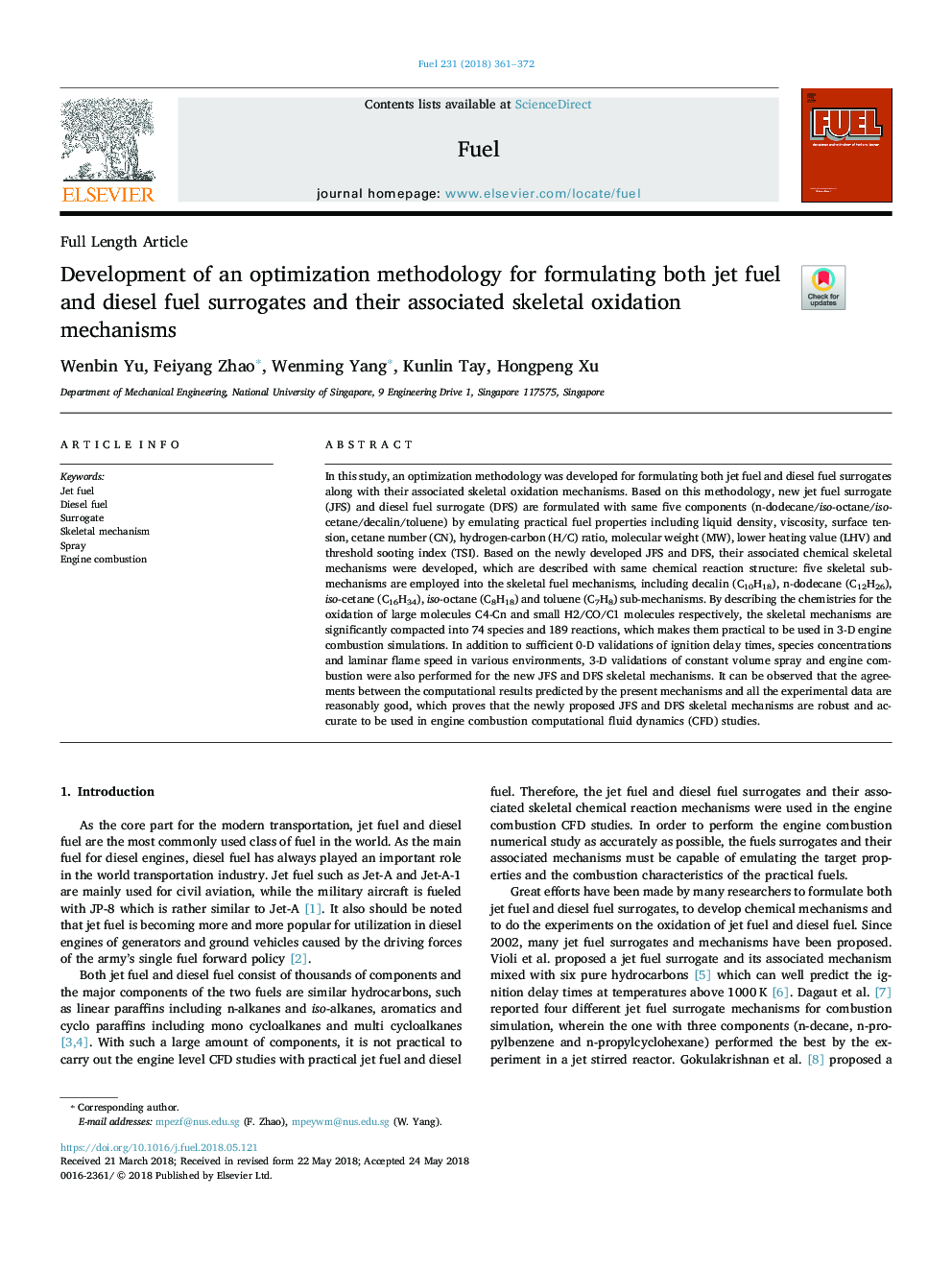| کد مقاله | کد نشریه | سال انتشار | مقاله انگلیسی | نسخه تمام متن |
|---|---|---|---|---|
| 6630562 | 1424933 | 2018 | 12 صفحه PDF | دانلود رایگان |
عنوان انگلیسی مقاله ISI
Development of an optimization methodology for formulating both jet fuel and diesel fuel surrogates and their associated skeletal oxidation mechanisms
ترجمه فارسی عنوان
توسعه یک روش بهینه سازی برای فرموله کردن جت سوخت و جایگزین سوخت دیزل و مکانیسم های اکسیداسیون اسکلت
دانلود مقاله + سفارش ترجمه
دانلود مقاله ISI انگلیسی
رایگان برای ایرانیان
کلمات کلیدی
سوخت موشک، سوخت دیزلی، جایگزین مکانیسم اسکلتی، افشانه، احتراق موتور
موضوعات مرتبط
مهندسی و علوم پایه
مهندسی شیمی
مهندسی شیمی (عمومی)
چکیده انگلیسی
In this study, an optimization methodology was developed for formulating both jet fuel and diesel fuel surrogates along with their associated skeletal oxidation mechanisms. Based on this methodology, new jet fuel surrogate (JFS) and diesel fuel surrogate (DFS) are formulated with same five components (n-dodecane/iso-octane/iso-cetane/decalin/toluene) by emulating practical fuel properties including liquid density, viscosity, surface tension, cetane number (CN), hydrogen-carbon (H/C) ratio, molecular weight (MW), lower heating value (LHV) and threshold sooting index (TSI). Based on the newly developed JFS and DFS, their associated chemical skeletal mechanisms were developed, which are described with same chemical reaction structure: five skeletal sub-mechanisms are employed into the skeletal fuel mechanisms, including decalin (C10H18), n-dodecane (C12H26), iso-cetane (C16H34), iso-octane (C8H18) and toluene (C7H8) sub-mechanisms. By describing the chemistries for the oxidation of large molecules C4-Cn and small H2/CO/C1 molecules respectively, the skeletal mechanisms are significantly compacted into 74 species and 189 reactions, which makes them practical to be used in 3-D engine combustion simulations. In addition to sufficient 0-D validations of ignition delay times, species concentrations and laminar flame speed in various environments, 3-D validations of constant volume spray and engine combustion were also performed for the new JFS and DFS skeletal mechanisms. It can be observed that the agreements between the computational results predicted by the present mechanisms and all the experimental data are reasonably good, which proves that the newly proposed JFS and DFS skeletal mechanisms are robust and accurate to be used in engine combustion computational fluid dynamics (CFD) studies.
ناشر
Database: Elsevier - ScienceDirect (ساینس دایرکت)
Journal: Fuel - Volume 231, 1 November 2018, Pages 361-372
Journal: Fuel - Volume 231, 1 November 2018, Pages 361-372
نویسندگان
Wenbin Yu, Feiyang Zhao, Wenming Yang, Kunlin Tay, Hongpeng Xu,
